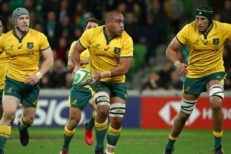The EFL Cup is an annual soccer competition which takes place in the UK, and is organised by the English Football League. It involves every team in the top four tiers of English football (92 in total), and is played in the traditional knock-out format.
The competiton was founded in 1960, and has had a number of different names since its inauguration. It also commonly referred to as the League Cup. Previous names (for sponsorship reasons) include: The Coca Cola Cup, The Littlewoods Cup, The Worthington Cup and the Milk Cup.
Typically, the first round of the competition takes place in August, with Premier League clubs entering the tournament at the second round stage. The final is played at Wembley Stadium, and is held at the end of February. It is the first domestic cup competition to conclude. All fixtures (except the final) tend to be held in midweek, and are therefore played under the floodlights.
There are seven rounds in total with only the semi-final being played in a two-leg format. The winner of the competition is rewarded with a place in the Europa League the following season.
Manchester City are the current holders of the competition, having beaten Chelsea in the 2018 final. The Citizens have won it six times, with four of their successes arriving in the last six years. Liverpool are the most successful club in the EFL Club, having been victorious on eight occasions. Their last triumph arrived in 2012.
Other clubs to have lifted the trophy on multiple occasions include Manchester United (5), Aston Villa (5), Chelsea (5), Spurs (4) and Nottingham Forest (4). Aston Villa were the inaugural winners of the competition, beating Rotherham in the final.
The winners of the trophy will receive £100,000 in prize money whilst the runners-up will get half of that amount.
Many lower-league clubs have reached the late stages of the competition, and the money received from a decent run in the EFL Cup is much sought-after. However, Premier League clubs (top six) have often used the competition to blood younger players, and have been known to play weaker teams. Entry to the EFL Cup was made compulsary at the beginning of the 1970s after both Manchester United and Everton had previously declined to participate.
France is the only other country in Europe to currently offer entry to the Europa League for winning a secondary cup competition.
There have been a number of giant-killings over the years with Manchester United suffering a number of early exits. Their 1995-1996 defeat to York City remains one of the great moment in the competition’s history. They were also beaten by MK Dons during the 2014-15 campaign.
Since 1998, the finals have been decided by a penalty shoot-out. From 2018-19 onwards, the EFL decided to scrap extra-time in the competition with tied matches going straight to penalties. The ABBA penalty system was trialled in the tournament during the 2018-19 season.
When and Where?
The EFL Cup takes place each season, and usually begins shortly after the first set of domestic fixtures. It typically concludes in February.
The fixtures take place at the sides who are drawn at home. The semi-finals are held over two legs with each participant getting the opportunity to host one of these ties.
The final takes place at Wembley Stadium in West London.
Why is it so Popular?
The EFL Cup is particularly popular with EFL clubs as there is a financial incentive. Progress in the competition increases the money accrued by the club, and additional funds will be given to teams who are selected for TV coverage by Sky Sports.
Fans of lower league clubs enjoy the EFL Cup as it gives their team a chance to potentially take on sides from higher divisions. There is also something very enjoyable about a midweek game under the floodlights.
What Betting Opportunities are Available?
There are many betting opportunities available pre-tournament. Ante-post betting is extremely popular with punters, and with one of the big boys typically prevailing, it often narrows the outright market down to a handful of teams.
There are also numerous betting opportunities available throughout the course of the competition with game-by-game markets available alongside odds for total goals during the first couple of rounds.
Key Betting Markets
To Win the EFL Cup – This is the most popular ante-post betting market with punters getting the chance to predict which side will lift trophy in late-February. Most betting companies will offer 1/2 of the odds for a side to reach the final two. If you have an e/w bet on the tournament, your chosen side must play at Wembley in the showpiece event in order to receive a pay-out.
Match Betting
90 Minute Betting – This is the most popular way of betting in each round of fixtures. Punters must select a team who will win inside 90 mins (not including penalty shoot-out) and successfully book their place in the next round of the competition. During the early-rounds, these markets are particularly popular with punters who regularly bet on accumulators.
Under/Over 2.5 Goals – Punters who don’t wish to nail their colours to the mast and select a winning team can always bet on the goals markets. In this market, bettors must predict whether there will be fewer than three goals, or more than three goals during the 90 minutes. Most games have 2-3 goals hence why the bookmakers set the line at 2.5. Again, thrse can be used in accumulators, and are very popular during the early stages of the competition.
Both Teams to Score – Similar to the Under/Over 2.5 Goals market, this is a goals-based bet which has become increasingly popular with punters. With much-changed line-ups (particularly by Premier League clubs), it can often be difficult to measure the strength of an XI, so betting on the goals markets is advisable. This market requires both teams to find the back of the net during the 90 minutes.
Handicaps – The EFL Cup can often throw up a number of one-sided contests, and handicaps are a great way of extracting some value. -1 handicap would require your chosen team to triumph by a two goal margin. For example 2 (-1) – 0 would be a winning scoreline for this market. If you take the goal away from the winning side, they would still be in the lead. Likewise, the +1 market gives the outsiders a chance of keeping the game tight, and staying within a goal of their opponent.
Anytime Goalscorer / First Goalscorer – These markets are often very popular in the EFL Cup and they can provide a great way of extracting value in tight games. Many teams will rotate their XI, so fringe players who haven’t been given the chance in the league games will often look to impress in this competition. This market will allow punters to pick players who will find the back of the net during the 90 minutes.
Correct Score – More ambitious punters may opt for the correct score market which allows them to predict the final result of the contest. Some teams have the habit of keeping things tight, and winning by the odd goal. Scorelines of 1-0 and 2-1 are particularly popular whilst seemingly one-sided games often attract correct score bettors who may opt to cover the 4-0, 5-0 and 6-0 scorelines.
Team to Score First – This market asks punters to predict which of the two sides will score first during the 90 minutes. Games which end goalless will result in a lost bet.
Bobby’s Big Betting Tips for the EFL Cup
Always Wait for Team News Before Placing a Bet – It is always tempting to place a bet in the morning, or perhaps at lunchtime, to ensure that you have plenty of time ahead of KO. However, it’s advisable in a compeition such as the EFL Cup to wait for the line-ups to be revealed. Some teams will change their entire XI for a game in this competition, and that will seriously affect their chances, and their odds usually begin to lengthen. Although PL clubs are particularly culpable when it comes to this habit, EFL Clubs also have the habit of rotating, particularly if they’ve made a bad start or find themselves embroiled in a relegation battle.
Look for Out-of-Favour Strikers – There are many forward who aren’t getting games for their club, and are asked to wait patiently on the sidelines until their chance arrives. The EFL Cup can often present the opportunity to impress, and it’s always advised to look for a striker who is desperate to get back amongst the goals. These are the ideal fodder for the anytime goalscorer market. In the 2018-19 competition, Nottingham Forest striker Daryl Murphy was regularly on the bench during the domestic ties, but he netted throughout the tournament, and could always be relied upon in the EFL Cup.
Look for Managers Who Love Cup Football – Some managers will want their side to win everything. Other managers will favour league games, and won’t be overly worried if their side crash out of this competition at the first hurdle. Always have a look at a managers pre-match conference before deciding whether a giant-killing is in the offing. A boss may give a clue as to whether he is taking it seriously or not. Also, some managers (despite having a small squad) will ask their player to fight for every ball and win every challenge whoever the opposition, and these are the best teams to back in the EFL Cup.
Where Can I Watch the EFL Cup?
Sky Sports viewers can enjoy live matches from the EFL Cup throughout the competition. Highlights are available in the UK on Quest.
















